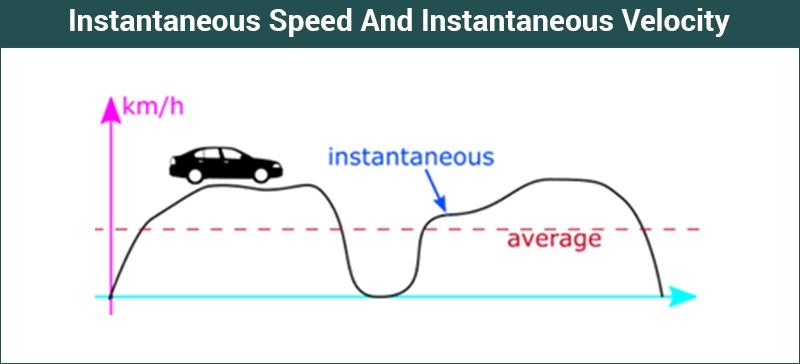Out Of This World Instantaneous Speed Definition In Physics

Instantaneous comes from the word instant meaning only one specific moment.
Instantaneous speed definition in physics. General Physics physics a scalar measure of the rate of movement of a body expressed either as the distance travelled divided by the time taken average speed or the rate of change of position with respect to time at a particular point instantaneous speed. Example A man traveling with his car 150m to the east and than 70m to the west calculate the average speed and velocity of the car if the travel takes10 seconds. BSL Physics Glossary - instantaneous speed - definition Definition.
Overview of Instantaneous Speed Vs Instantaneous Velocity. When an object is in motion then at a specific time the velocity of body is said to be instantaneous velocity. The speedometer gives the record of speed for each instant of time.
This is different than your average speed from the trip which takes into. For example reaching 60 mph in a car takes time and different cars reach it within different times. In other words we can say that instantaneous speed at any given time is the magnitude of instantaneous velocity at that time.
Instantaneous speed is measured in metres per second m s -1. Instantaneous velocity is defined as the rate of change of position for a time interval which is very small almost zero. Formula of Instantaneous Speed.
For example suppose the airplane passenger at one instant had an instantaneous velocity of the negative meaning toward the rear of the plane. Italian physicist Galileo Galilei is usually credited with being the first to measure speed by considering the distance covered and the time it takes. At that same time his instantaneous speed was.
It has both magnitude and direction. Instantaneous speed is the magnitude of instantaneous velocity. Instantaneous speed is the magnitude of the instantaneous velocity.













